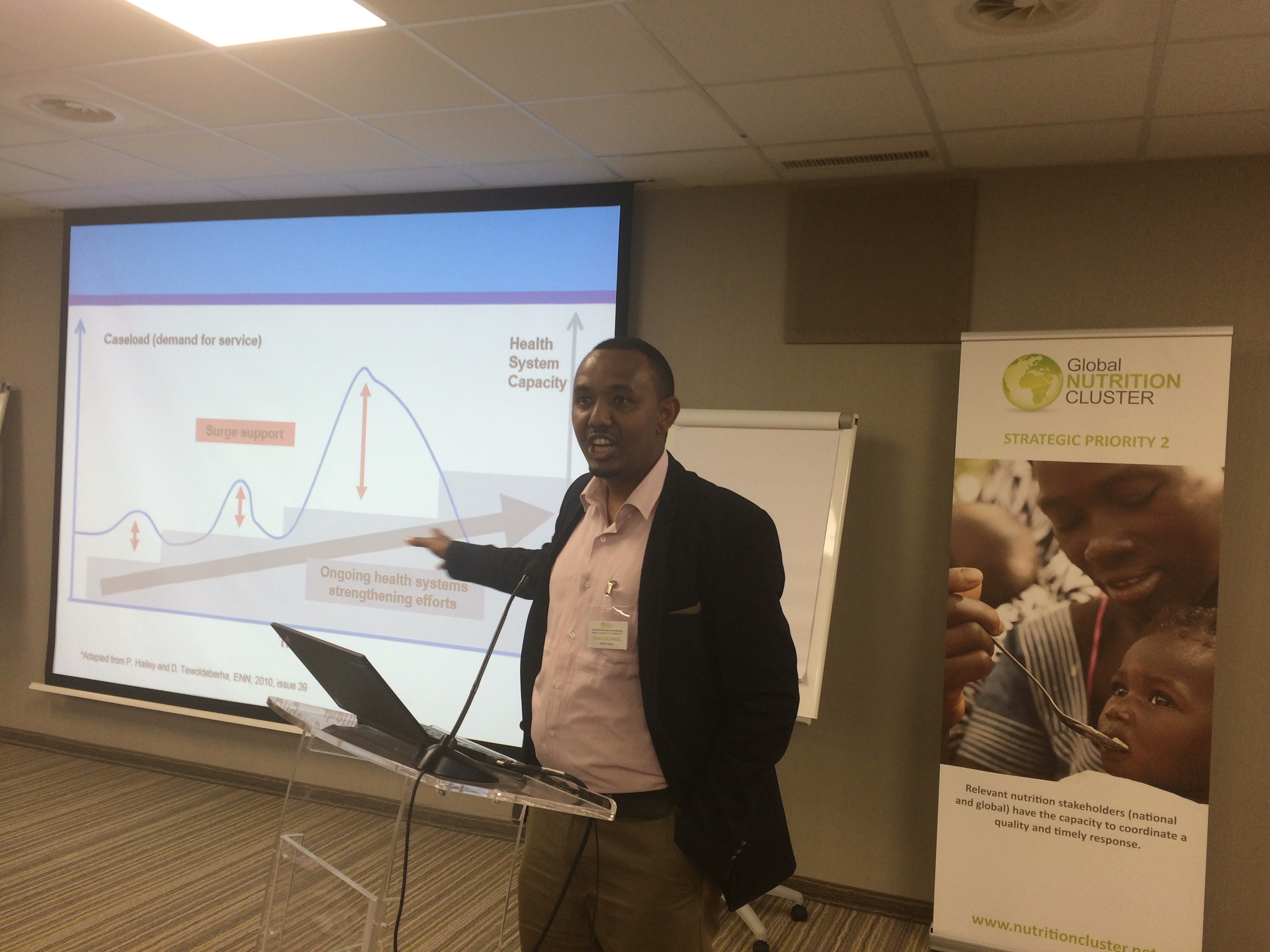The Global Nutrition Cluster Annual Meeting:
Thoughts on progress and risks
We recently attended the Global Nutrition Cluster Annual meeting in Geneva. ENN, as part of the process of pulling together a special issue of Field Exchange on Nutrition Cluster Coordination (which will be out in November), worked behind the scenes with cluster coordinators from 6 countries to help them to set out and synthesise what is going well in their focal countries, what challenges they face, what steps they can take to overcome these challenges and, what ‘asks’ they have of the global level. They presented on Day 1 to around 90 participants from UN agencies, NGOs, donors, academia and from other clusters. It was a day of very rich learning.
Listening to the nutrition coordinators describe the complexities of their work in four high profile/Level 3 emergencies -Yemen, South Sudan, North Eastern Nigeria and Somalia- we were struck by how far the cluster mechanism has come and how skilled these coordination staff are in terms of navigating the architecture in which they operate, the work the cluster information managers do to map interventions, provide coverage and other data and, in terms of their outreach to other sectors, including to the development partners, to jointly plan and act where this is possible….and it seems, this is increasingly the case. In fact, the nutrition coordinators are increasingly the lynchpin to advocate for, broker, and catalyse inter-sectoral nutrition action. When you think about when (2005) and why the cluster system was established and the state of coordination and capacity leading up to it’s inception, the progress really has been phenomenal and nowhere more so than in the nutrition sector.
At the meeting we also heard about the 2017-2020 GNC Strategy and a 2-year costed Work Plan, the work that has gone on to put in place much greater inter-cluster (read sectors such as food security, WASH, health) coordination and integrated action for greater impact on those affected by crisis and the work of the coordination and technical rapid response teams, which provide surge support in response to country ‘collective’ need for urgent coordination, information management and technical nutrition in emergencies support in an emergency.
Over the 3 days, delegates focussed on the main driver of change in the humanitarian system- the New Way of Working, the Grand Bargain and the SDGs to mention a few and worked on priorities for the nutrition cluster to engage more effectively across both the humanitarian and development divide and across sectors to effect necessary change and greater coherence. Country cluster coordinators remained central to the thinking, a critical reality check, and never ceased to impress.

The meeting was rich in terms of experience based learning and analysis. Participation was engaging, collegiate, dynamic and at times, even fun! The energy and effort that went into the meeting is testament to the value of the collective that has evolved. However, on the final day, we were reminded that despite all the progress the nutrition cluster has made and many country success stories it can share highlighting the benefits of well-coordinated assessment and actions, it faces an unprecedented lack of funding for the implementation of its work plan, for the maintenance of the rapid response facility, for the GNC Help Desk and for staff who keep the cluster ‘show on the road’. It seemed to us that at a point when the nutrition cluster is needing to embrace the complex changes demanded of the humanitarian (and development) system post the world humanitarian summit, it is now at risk of being unable to rise fully to the opportunities and challenges ahead.
We are pretty sure that a lot of people in the room (some with a longer institutional memory than they may be prepared to admit) were very surprised that such a demonstratively successful cluster should be fighting for its financial life at a time when the challenges ahead are so great. It is also very difficult not to compare the nutrition cluster’s current position to that of other international nutrition coordination mechanisms whom, by comparison are more secure. Surely no one wants to return to the bad old days when the absence of coordination and professional peer support often led to very poor programming? We refer you to the 1996 Great Lakes Evaluation if you need reminding of how bad it was pre-humanitarian reform. We therefore have a very simple message ‘SAVE OUR NUTRITION CLUSTER. Fund the GNC!’.
